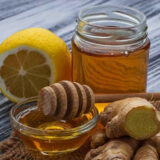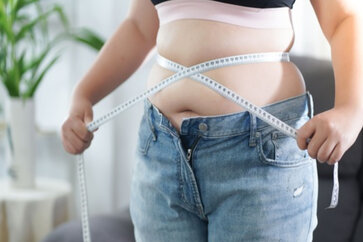How To Get Rid Of A Hangover Home Remedies
Hangovers serve as a poignant reminder to our bodies about the perils of excessive indulgence. In physiological terms, they represent a collaborative endeavor, with symptoms such as diarrhea, fatigue, headache, nausea, and shaking taking center stage. 
At times, the systolic blood pressure (the upper number) may elevate, accompanied by an accelerated heart rate and excessive perspiration—an indication that the “fight or flight” response is in full swing. Sensitivity to light or sound may emerge for some, while others grapple with a disorienting spinning sensation known as vertigo.
What Causes Hangovers?
The causes of hangovers exhibit a diverse range, mirroring the array of symptoms experienced. While the metabolism of alcohol into acetaldehyde, a highly toxic substance, plays a role, it does not provide a complete explanation since acetaldehyde concentrations rarely reach harmful levels.
One contributing factor is the disruption of brain activity during sleep due to alcohol consumption, resulting in a state akin to sleep deprivation.
The intricate balance of hormones responsible for regulating our biological clocks becomes disturbed under the influence of alcohol, which may explain why a hangover can feel similar to the disorientation of jet lag, and vice versa.
Furthermore, alcohol has the potential to trigger migraines, leading some individuals to mistakenly attribute their symptoms to a hangover when they are actually experiencing an alcohol-induced migraine.
Hangovers typically manifest once blood alcohol levels begin to decline, with some experts suggesting that the most severe symptoms occur when these levels reach zero.
The crucial factor in experiencing a hangover appears to be the act of consuming alcohol to the point of intoxication, rather than the quantity consumed to reach that state. Surprisingly, several studies indicate that light and moderate drinkers are more susceptible to hangovers than heavy drinkers.
Paradoxically, conflicting research suggests that individuals with a family history of alcoholism tend to endure more severe hangovers. Researchers propose that some people may develop alcohol-related issues because they resort to drinking as a means of relieving hangover symptoms.
How To Prevent Hangovers?
Preventing hangovers can vary from person to person, with alcohol affecting individuals differently. However, the following tips can help reduce the likelihood of experiencing a hangover when consuming alcohol:
- Consume alcohol slowly and ensure you have a full stomach before drinking.
- Drink in moderation, avoiding excessive alcohol consumption.
- Women should limit their alcohol intake to no more than 1 drink per day, while men should limit themselves to no more than 2 drinks per day. A single drink is typically defined as 12 fluid ounces (360 milliliters) of beer with approximately 5% alcohol, 5 fluid ounces (150 milliliters) of wine with about 12% alcohol, or 1 1/2 fluid ounces (45 milliliters) of 80-proof liquor.
- Hydrate yourself by drinking a glass of water in between alcoholic beverages. This can help reduce overall alcohol intake and decrease the risk of dehydration caused by alcohol consumption.
How To Get Rid Of A Hangover Fast At Home?
When it comes to hangover remedies, abstaining from alcohol altogether is undoubtedly the most effective solution. However, if you do choose to drink, here are some straightforward tips to aid in preventing and alleviating the distress of a hangover.
1. Eat a Hearty Breakfast
Having a substantial breakfast is an additional straightforward and efficient method to combat hangovers, as it assists in replenishing the essential nutrients depleted during a night of indulgence.
However, if you’re experiencing nausea as one of the symptoms, it may be wise to wait until your stomach settles before consuming a substantial meal.
Opt for foods that are rich in electrolytes to help alleviate dehydration and restore some much-needed calories to your body. Cereal and toast are easily digestible options that can provide the necessary energy to kick-start your day.
2. Go Back to Bed
Returning to bed is an exceptionally potent approach to treating a hangover. Acquiring additional sleep is among the most effective and natural means of allowing your body to recuperate.
While taking a nap might not be feasible for everyone, particularly those with work or parental responsibilities looming, it remains one of the simplest methods to facilitate the body’s self-healing process.
Although hangovers are not solely caused by a lack of sleep, a night of inadequate or shallow sleep can certainly exacerbate the symptoms. Avoid attempting to push yourself too hard and simply grant your body the rest it requires.
3. (While Hydrating) Sip Coffee or Tea
Enjoying a cup of coffee or tea (while ensuring proper hydration) is another potential remedy to consider. It’s crucial to maintain hydration while consuming these beverages since coffee, tea, and other caffeinated drinks can have diuretic effects.
However, it’s worth noting that coffee, green tea, and black tea contain antioxidants that can help alleviate hangover symptoms. These stimulants may also assist in combating fatigue, allowing you to navigate through a workday if necessary.
4. Before You Drink
To mitigate the symptoms of a hangover, proactive measures can be taken before consuming alcohol. While an instant cure for a hangover does not exist, it is possible to prevent its occurrence entirely by using hangover prevention pills which are commonly available on the market.
Specific product pills comprise a comprehensive array of natural ingredients formulated to eliminate toxins, safeguard the liver, and replenish the body. By taking such a supplement prior to consuming your first drink, you can wake up free from symptoms and fully prepared to seize the day.
5. Get Your Fill of Antioxidants
While a trip to the supermarket may not be on your agenda during a hangover, chances are you already have a selection of antioxidant-rich foods tucked away in your pantry or refrigerator.
These foods are known to assist in minimizing the oxidative stress induced by alcohol consumption. Items such as berries, carrots, spinach, ginger, dark chocolate, nuts or seeds, pomegranates, and more can significantly alleviate the adverse effects of alcohol and ease hangover symptoms.
If you anticipate an evening of drinking, it’s advisable to ensure your home is well-stocked with these antioxidant-packed eats beforehand.
6. Water and Electrolytes
When grappling with a hangover, it’s common to instinctively reach for a glass of water. This is due to alcohol’s diuretic effect, which leads to increased urine production during consumption.
Consequently, it results in electrolyte imbalances and dehydration. To address these issues, it is advisable to consume water or opt for electrolyte-rich beverages such as Nuts, Potatoes, Broccoli, Sunflower and pumpkin seeds, Cow’s milk, Alternative milk, Coconut water, and Pickle juice.
Additionally, maintaining proper hydration while consuming alcohol, aided by natural energy supplements, can assist in minimizing hangover symptoms before they manifest.
7. Getting some carbohydrates
Introducing carbohydrates into your system is a beneficial strategy when dealing with a hangover. Consuming alcohol can potentially decrease blood sugar levels, leading to fatigue and headaches as the brain functions with insufficient fuel.
Additionally, people often neglect to eat while drinking, further contributing to lowered blood sugar levels. To address this, opting for a combination of toast and juice can help gently restore blood sugar levels to normal, providing a much-needed boost.
Note: Dealing with a hangover doesn’t have a universal solution, but addressing the symptoms can contribute to feeling better. To alleviate hangover symptoms, consider trying the above home remedies.






















